Commander of the phantom army
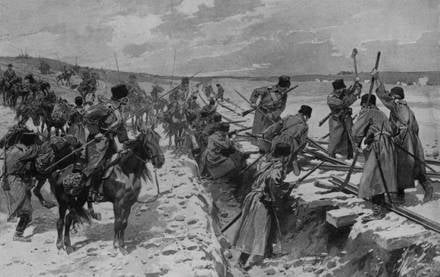
В stories There is no civil war, perhaps, a more vague and diligently explored topic than the front line and the military successes of the 2 Cavalry Army.
In Soviet times, the first mention is just a mention! - about her in the scientific historical literature appeared in the 1930 year. The second - a quarter of a century later, in 1955. Then there was another fifteen years of deaf silence. And only in 1970-m - a barely noticeable timid attempt to tell something about the participation of this army in the defeat of Wrangel and the liberation of the Crimea. Which immediately followed the roar of the authorities: "Do not you dare!"
So today the very fact of the existence of this huge cavalry unit, which played a prominent role in the final stage of the fratricidal meat grinder, for many of our compatriots can be a complete revelation.
As well as the biography of the commander Philip Kuzmich Mironov - one of the first high-ranking Soviet military commanders who decided on an armed struggle against the regime that nurtured him ...
Hero and truth seeker
From the very beginning, his fate abounded in sharp turns and unpredictable turns. The future red commander was born in 1872 on the village of Buerak-Senyutkin, the stanitsa village of Ust-Medveditskaya (now it is Serafimovichsky district of the Volgograd region). He graduated from the parish school and two classes of the local gymnasium.
At the age of twenty began the military service of Philip Mironov. For two years, the young man regularly compiled and rewrote orders and reports in the office of one of the district administrations of the Don Cossacks, and then entered the Novocherkassk Junker School.
In the 1898, the newly-minted, but by no means young, cornet took over fifty of the scouts in the 7 Don Cossack Regiment. He served conscientiously and was repeatedly encouraged by the command for exemplary training of subordinates who were famous throughout the whole division for their daring and dashing. But after three years, barely having received the title of centurion, he resigned - men's hands and skill were more necessary in a large household. However, Mironov did not remain a simple Cossack for long: his countrymen soon elected him a village chieftain.
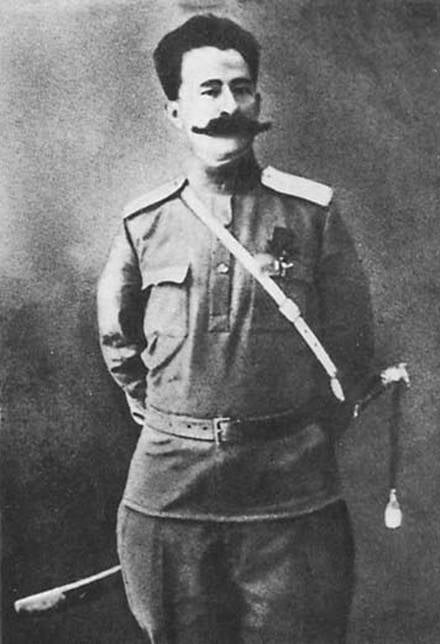
When the Russian-Japanese war began, Philip Kuzmich filed a petition three times asking him to reinstate him in the service, but he only got to 1904 in June and spent only 10 months at the front. But he fought so boldly and desperately that in such a short time he was awarded four orders: St. Vladimir 4 degree, St. Anna 3 and 4 degree and St. Stanislav 3 degree. So, in the native village of Mironov, besides for the combat differences prematurely produced in the porchesaula, he returned in the rays of well-deserved fame.
But then suddenly began his friction with the authorities. Returning to Ust-Medveditskaya, Philip Kuzmich became the initiator of the district gathering, at which the villagers accepted - no more and no less! - the mandate of the State Duma. In it, the Donians asked to adopt a law on the release of the Cossacks of the second and third lines of conscription (that is, already elderly, sophisticated and combat experience) from carrying out police service during workers 'and peasants' unrest. They have enough trouble, and let the police and the young men do nothing to pacify the disaffected.
With this mandate, the stanitsa ataman headed the delegation headed for St. Petersburg. It is easy to imagine the confusion of the then parliamentarians: the events of the First Russian Revolution are in full swing in the country, and the Cossacks - the eternal support of the throne - are announced to the capital with such a request!
In general, after returning home, Mironov, despite all his military merit, fell into disgrace with the leaders of the Don Cossacks: he was no longer elected a village chieftain, and until the very beginning of the First World Philip Kuzmich quietly and peacefully engaged in farming on his land plot under secret police surveillance.
But then the thunders of the military thundered - and the brave Cossack officer was again in the saddle. And again, fighting beyond lauding. By the fall of 1917, he became a military foreman (lieutenant colonel), reached the post of deputy regiment commander, his uniform adorned the Order of St. Vladimir 3 degree, St. Stanislav 2 and 1 degree, St. Anna 2 and 1 degree . That is, the commoner-Cossack became a full gentleman of the two orders of the Russian Empire, which was already a unique phenomenon.
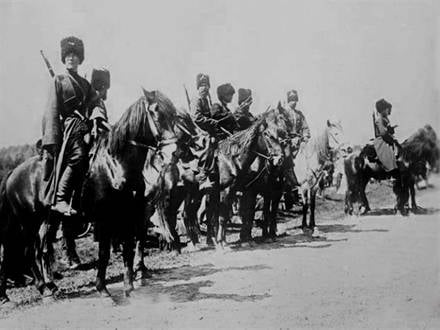
And in June, 1917-th Philip Kuzmich was awarded the St. George weapons. The reward, to be sure, is a very honorable, but in itself a case of an ordinary for the war years. However, it will be only three years, and the commander Mironov will receive a piece from the government of the Soviet Republic with the Order of the Red Banner sealed into the hilt. After that, it will become the only holder in the world of three types of award weapons - Annensky, St. George and Honorary Revolutionary ...
Citizen cossack
In January, 1918, a military foreman elected as the commander of the 32 Cossack Regiment, voluntarily led subordinates from the Romanian front to the Don, already engulfed in the Civil War. Mironov, who unreservedly sided with the new government, was elected by the Cossacks to the Ust-Medveditsk District Revolutionary Committee, then the military commissar of the district. In the spring of 1918, to fight the whites, Philip Kuzmich organized several Cossack partisan detachments, which were then united into a brigade, which later developed into the 23 division of the Red Army. Naturally, Mironov was appointed the beginner.
Ardent and straightforward, he did not immediately figure out what kind of idea he was advocating. Therefore, he fought for her as selflessly as he had just recently defended the king and the Fatherland. The glory of the national hero was on his heels. Cossacks from the regiments of the ataman Krasnov hundreds passed to Mironov.
“Dare, clever, cunning. In battle, he saves his. After the battle, prisoners are allowed to go home with the mandate to the village brothers to stop the fratricidal slaughter. In the liberated villages gathers huge rallies. He speaks hotly, contagiously, besides, in a simple and understandable language for Cossacks, since he is local. The appeals are simply signed by “Cossack citizen Philip Mironov.” The subordinates consider him conspired by a bullet and are ready to go after him into fire and water, ”said the Chairman of the All-Russian Central Executive Committee Mikhail Kalinin, who told Lenin about the head of Mironov. To which the leader of the world proletariat, with an indescribably cunning squint, replied: "We need such people!"
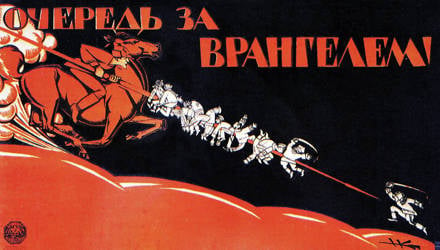
In the middle of summer, Mironov was introduced into the Cossack department of the All-Russian Central Executive Committee, located in Rostov-on-Don, and at the same time placed at the head of one of the military groups. In September 1918 - February 1919, Philip Kuzmich successfully acted in the south, famously smashing the white cavalry near Tambov and Voronezh, for which he was awarded the highest at that time award of the young Soviet Republic - the Order of the Red Banner. The first such order was received by Vasily Konstantinovich Blyukher, the second - by Ion Emmanuilovich Yakir. Order number 3 was Philip Kuzmich Mironov!
Soon followed the transfer of the revolutionary hero to the Western Front, where Mironov was entrusted with command of the first Lithuanian-Belarusian, and then the 16 army. After that, just as suddenly in mid-summer, 1919 was recalled to Moscow.
Insurgency
At that time, there was a relative calm on the Western Front. But in the South, the situation for the Reds became more and more threatening - Denikin suddenly began and successfully developed an offensive against the capital.
In Moscow, Vladimir Ilyich Lenin personally met with Philip Kuzmich and brought him a new and extremely important task: to correct the situation, the Soviet government decided to hastily form in Saransk a special equestrian corps of captured Cossacks and send this compound to the Don. It was proposed to Mironov to head the Cossacks, who were given a chance to atone for imaginary and real sins before the Soviet power, in connection with which Philip Kuzmich was vested with the broadest powers.
Mironov, always sincerely ill for the Cossack case, agreed and immediately left for the Volga region. However, immediately after arriving in Saransk, I realized that he was brazenly deceived. The commissioners sent to the corps were mostly tainted by atrocities in the Don and the North Caucasus in 1918. They openly sabotaged the orders of the commander, and the Cossacks, especially the former officers, were arrogant, with undisguised hatred and distrust, pestered meticulously. In addition to this, shocking news about the massacres perpetrated by the Reds over the Cossacks in the captured villages came from their native places. And Philip Kuzmich could not resist.
22 August 1919 of the year in Saransk, a spontaneous rally of soldiers of the formed corps began, to which Mironov arrived. Instead of besieging subordinates, the commander supported the rebels. “What remains to be done by a cossack who is outlawed and subject to merciless extermination ?! - shaking his fist, Mironov angrily inquired. And he himself answered: - Only to die with bitterness !!! ... In order to save the revolutionary gains, he further stated, we are left with the only way: to overthrow the communists and avenge the desecrated justice. ” These Mironov's words were carefully recorded by political workers and employees of the Saransk Cheka, who were present at the rally, and were transferred by telegraph to Moscow.
And Mironov was already unstoppable: on August 24 he raised the not yet formed corps and moved it southward, intending, as stated in the order, “to go to Penza, to approach the Southern front and, having defeated Denikin, to restore Cossack power in the territory of the Don Cossack Army , freeing the population from the Communists. "
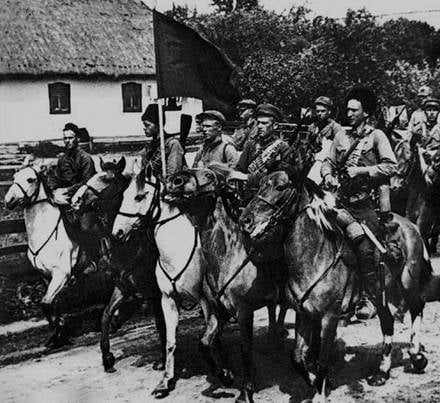
4 September 2000 rebellious horsemen occupied Balashov. But here were surrounded by four times superior to the forces of Budyonny. Understanding that resistance was useless, Mironov ordered that they lay down their arms: Philip Kuzmich stayed true to himself and did not want to shed Cossack blood once more. In general, it may seem surprising, but nevertheless it is a historical fact: neither in Saransk, nor along the way of the Mironovites, was a single red commander, Red Army man, commissar or security officer killed!
But Semen Mikhailovich Budyonny was not so noble and sentimental. On his orders, the commander and another 500 people were put on trial by a military tribunal, which sentenced Mironov and one in ten of those arrested to be shot. The verdict was going to be enforced at dawn on October 8. But the night before a telegram came to the following content:
“By direct wire. The cipher. Balashov. Smilge. The slowness of our attack on the Don requires a heightened political influence on the Cossacks in order to split it. For this mission, it may be possible to take advantage of Mironov, summoning him to Moscow after the sentence of execution and pardon him through the All-Russian Central Executive Committee with his commitment to go to the white rear and raise an insurrection there. I put in the Politburo of the Central Committee for discussion the question of changing the policy to the Don Cossacks. We give Don, Kuban complete autonomy, after our troops are clearing the Don. For this, the Cossacks completely break with Denikin. Adequate guarantees must be provided. Intermediaries could be Mironov and his comrades. Send your written comments along with sending Mironov and others here. In order to be careful, Mironov should be sent under mild but watchful control to Moscow. The question of his fate will be decided here. 7 October 1919 of the Year, No. 408. Pre-Military Council Trotsky.
Thus, Philip Kuzmich once again became a bargaining chip in a big political game. But he himself, of course, did not know anything, taking everything that was happening to him at face value.
In Moscow, Mironov was brought to a meeting of the political bureau of the Central Committee of the RCP (B.), Where he was publicly expressed "political trust" by the top officials of the party and the state. Moreover, Philip Kuzmich was accepted right there as a candidate member of the Communist Party and appointed Don to one of the key posts at the CEC, and a few days later his address to the Cossacks was published in the Pravda newspaper.
But, having risen in spirit, Mironov was happy not for long. Denikin's offensive on Moscow choked, the white hastily retreated to Novorossiysk, were evacuated to the Crimea, and the need for authority of Philip Kuzmich again disappeared. He, militant and renowned, but uncontrollable and masterful commander-cavalryman, became head of the land department and the anti-plague cabinet in the Don Bolshevik government. Something extraordinary had to happen, so that the Communists would again have a burning need for Mironov.
And such an event happened: in the summer of 1920, the troops of Baron Wrangel broke out of the Crimea to the operational space and launched an offensive in Northern Tavria. At the same time, the Poles, having defeated Tukhachevsky and Budyonny near Warsaw, moved east.
The outcome of the Civil War again became uncertain and unpredictable.
2-I conarmy
While the cavalry of Budyonny licked his wounds after an unsuccessful Polish campaign, on the basis of the cavalry corps, the formation of which began, but did not finish, Philip Kuzmich, 16 July 1920 of the year was deployed 2-I Cavalry Army. It includes 4 cavalry and 2 rifle divisions (a total of just over 4800 sabers, 1500 bayonets, 55 guns and 16 armored vehicles). Mironov was put in command of this armada, transferred to the Southern Front.
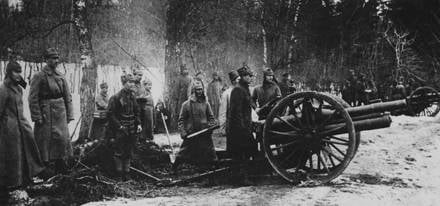
Already on July 26, its regiments joined the battle with Wrangel's troops and, in cooperation with the 13 army, threw them away from Aleksandrovsk. In August, horsemen Mironov broke through the front line and went for a walk along the Wrangel rears, making a daring 220-kilometer raid.
In September, 2-i Horse, bred in the reserve, rested, replenished with people and ammunition. October 8 Wrangel forced the Dnieper and launched an offensive, trying to defeat the Reds grouping at Nikopol. At first, Baron was successful: the city was taken, and the whites set their sights on the Apostolovo, then to knock over the Kakhovsky bridgehead, which was sitting with a bone in their throat, with powerful blows. It was here that they clashed with Mironov's cavalry.
The 12 – 14 of October in the fierce battles that went down in the history of the Civil War as the Nikopol-Alexander Battle, the regiments of the 2 Cavalry Army broke the cavalry corps of the white generals Babiev and Barbovich, disrupting the white intentions to join the Poles on the right bank of the Dnieper. For this victory, the commander Mironov was awarded a sword with a gilt hilt, which was sealed into the Order of the Red Banner. Philip Kuzmich, this was the second revolutionary order, at the same time he became the eighth red commander awarded an honorary revolutionary weapon.
Following the defeat of Mironov, the Wrangel suffered a cruel failure at Kakhovka and began to hastily retreat to the Crimea, trying to withdraw as soon as possible for the Perekop Isthmus. Cutting the White Paths The Revolutionary Military Council commissioned the 1 Cavalry Army. But Budyonny did not cope with this task, and the baron with the 150-thousandth army again shut up on the peninsula. People's Commissar for Military and Maritime Affairs Leon Trotsky tore and threw metal: wrathful telegrams were demanding one after another to the commander of the Southern Front, Mikhail Frunze, commanders of armies and troop groups, regardless of any the victims. "
The offensive of the Southern Front forces began on the night of November 8. The positions of the whites on the Perekop isthmus were stormed by the 6-I Red Army. For the development of success in this area, the 2-I Cavalry Army and units of the 1-th Rebel Army concentrated on the Makhno fathers. In the Chongar area, through the Sivash Bay, the 4 Army was to operate, the main task of which was to make way for the horsemen of Budyonny.
The Lithuanian Peninsula was cleared of white for the November 8 8 watch. The Turkish rampart at Perekop red stormed continuously for thirteen hours and ascended on it only in the morning of November 9. However, the Wrangel members frenzied the red parts from the isthmus with a mad counter-attack. Frunze ordered the 16 Cavalry Division of the 2 Cavalry Army and the Makhnovists to be thrown to the aid of bleeding regiments. Budyonny's army remained in place.
10 November in 3 hours 40 minutes 16-I cavalry division made a throw on the south bank of the Sivash and rushed in a rapid march to the Salty-Krasnoe interdisciplinary defile to save from complete destruction the remaining 15 and 52-ray systems. th army.
Wrangel hastily moved forward the 1 Army Corps, consisting of officer regiments, and General Barbovich's cavalry corps. On the morning of November 11, the Reds were driven back to the tip of the Lithuanian Peninsula. Barbovich's cavalry went into the rear of the 51 and Latvian divisions, fighting in the Yushun station area, and for them there was a real threat of encirclement. Moreover, the entire Crimean operation of the Southern Front of the Red Army hung in the balance.
It was then that Frunze gave the order to the 2 Horse Mounted immediately to help the units of the 6 Army to assist them "in the last battle deciding the outcome of the whole operation" (M.V. Frunze. Selected Works, v. 1, p. 418 ). Budyonny's army remained in place.
On November 11, in the morning hours, 5 Mironovtsy crossed the Sivash Bay, went to the Lithuanian Peninsula east of Karadzhan, meeting on the way the wounded of their 16 th cavalry division. And with the move rushed to the attack. A bloody battle went on all day. The battles reached special bitterness near Karpovaya Balka, where the corps of General Barbovich and the Kuban cavalry brigade, supported by the officer battalions of the Drozd and Kornilov divisions, broke through to the rear of the 51 th Infantry Red Division.
The two horse lavas drew closer together like thunderclouds: a few more hundred meters - and the cruel felling would begin. But at that moment, the red cavalry parted, and the enemy turned 300 machine gun carts Makhnovsky Kombriga Seeds Karetnik ... The rate of "maxim" is 250 – 270 shots per minute. That is, three hundred of these infernal machines in the first minute spat out at least 75 thousands of bullets in the direction of Barbovich's cavalrymen, and as many more in the second. In the open field to escape from such a quantity of lead is almost impossible!
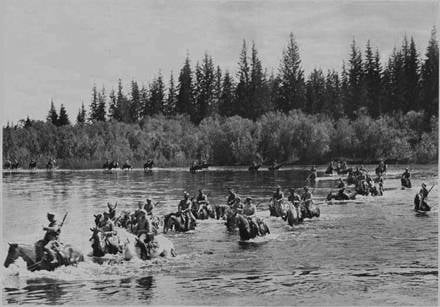
After the death of their cavalry, the Wrangel continued an organized resistance, at the same time perfectly aware that they had already lost the battle for the Crimea. In some places, the retreat of white escalated into flight. They were pursued by the 21 and 2 of the cavalry division of the 2 Cavalry Army. Budyonny's army still remained in place.
12 November around 8 o'clock in the morning 2-I cavalry division occupied Dzhankoy station. At the same time, the main forces of the 2 Cavalry Army struck southward, in the direction of Kurman-Kemelchi station, where the enemy decided to withhold the onslaught of the Reds at any cost in order to gain time for loading on the steamers. Only after a six-hour battle, the enemy abandoned the station, huge stocks of military property and hurriedly moved to Simferopol.
This battle at Kurman-Kemelchi was the last in the Crimea. As a result of the 11 and 12 battles of November, the 2-I Cavalry Army took rich trophies and over 20 thousands of prisoners. November 15 cavalry Mironova occupied Sevastopol, and November 16 already abandoned Kerch Wrangle.
And what about the 1-I Cavalry Army?
Here is what its commander, Simon Mikhailovich Budyonny, writes in the book “The Traversed Path”: “1-I Horse went on a campaign in the morning of November 13. By this time, the 6 and 2 units of the Cavalry armies had already cut the highway to Simferopol, occupied Dzhankoy station and Kurman-Kemelchi town, where 2 brigade of 21-th Cavalry Division especially distinguished ... We went, - says the Soviet marshal - on the wounded, still smoked Crimean land, where most recently there were battles. Fallen wire obstacles, trenches, trenches, shell craters and bombs. And now a wide steppe opened before us. We spurred the horses ”(p. 140). That is, the legendary military leader himself admits that his army did not participate in the Crimean battles! But does not explain why.
And just at that time in the subsequent glorified and glorified 1-I cavalry army was extremely unreliable. Back in early October 1920, its 6 Cavalry Division, during the transfer from the Polish to the Wrangel Front, rebelled against the Bolsheviks, speaking under the slogans “Down with Trotsky!” And “Long Live Makhno!”. The rebels dispersed the political and special divisions of the division, shot or killed about two dozen commanders, commissars and security officers and marched to join the 4 cavalry division of the same 1 Horse, ready to support them. They calmed down only after they were blocked by armored trains and formed by the Communists and Komsomol members of the ChON troops subordinate to the Cheka. The instigators and the most active participants in the rebellion were shot, and new, more zealous commissars and volitional commanders were sent to the division. But in the high headquarters still continued to believe that the combat capability of these compounds is low. And then there was the army of Makhno near her ...
Mironov in those days was at the height of glory. "For executive energy and outstanding courage shown in the last battles against Wrangel," MV Frunze introduced him to the third Order of the Red Banner. The commander of the Revolutionary Military Council of the Republic, Lev Trotsky, sent the commander-in-chief of the Commissariat of Military Commissars and sent the commander’s telegram of thanks.
But immediately after her came a Jesuit, perfidious order, incomprehensible to the straightforward and inexperienced in political games Philip Kuzmich. It was he and his cavalry who were ordered to disarm recent comrades-in-arms — the 1 th Makhno Insurgent Army, Nestor Ivanovich himself — to arrest and transfer into the hands of the security officers, and his fighters “to infuse in small groups into the Red Army infantry and cavalry units.”
Makhno felt bad about the animal instincts and hurried away from the Crimea. Mironov, sent by Frunze in pursuit of yesterday’s allies, written off by the Bolsheviks, caught up with them already at Taganrog. Naturally, the Makhnovists did not want to disarm, and the case ended in several battles that put an end to the existence of the Batkina army. Makhno himself, who was shot in the face with a gunshot, with a handful of particularly close people, managed to break away from the persecution and go to Romania.
So, if in the defeat of Wrangel and the liberation of the Crimea, the 2-I Cavalry Army played one of the leading roles, then the Bolsheviks should only give thanks to Mironov for the elimination of Makhno’s army.
They thanked, but in their own way. December 6 1920, 2-I Horse was disbanded and reduced to a horse hull, which was placed in the Kuban. And Philip Kuzmich was summoned to Moscow to accept the post of Chief Inspector of the Red Army Cavalry. That is, the former commander was formally placed at the head of the entire red cavalry, but the real strength — the Don Cossacks, the souls who did not touch him and were ready to carry out any of his orders — were taken away from Mironov.
However, Philip Kuzmich did not have time to enter into a new position ...
Uprising in Mikhailovka and shot in Butyrka
On the night of December 18, a guard battalion rebelled in the village of Mikhailovka, Ust-Medveditsk District, Don Region. At the head of the rebels was his battalion commander Kirill Timofeevich Vakulin, a communist and commander of the Order of the Red Banner. The cause of the rebellion of the whole military unit was discontent with the cruelty with which the region carried out surplus, or more simply, the withdrawal of food, wheat and rye stocks prepared for spring sowing from the population.
The insurgent soldiers, who spoke under the slogan “Down with the commissars, long live the power of the people!”, Were supported by a significant part of the nearby Cossack villages. Later, the Red Army soldiers of military units sent to suppress the insurrection, as well as former Cossack officers released from prison and the PSCC, began to cross over to their side. No wonder that the number of rebels grew like a snowball. By the spring of 1921, this rebel formation numbered 9000 men, divided into three regiments, had its own machine-gun command, which had fifteen "maxims", as well as three 100 sabers each, and a battery of three field guns with fire reserves up to 200 shells. But now the conversation is not about that.
During the Civil War, Vakulin commanded a regiment in the Mironov 23 Division and was therefore well known to Philip Kuzmich. At the beginning of the rebellion, the name of the commander and his authority among the Cossacks Vakulinsky agitators were constantly used to recruit new supporters, referring to the fact that parts of the Mironovsk corps were about to come to the aid of the rebels, and Mironov himself agreed to lead the struggle "for the Soviets without communists, for the people power without commissioners. " This information reached Moscow, where they caused great concern: and, indeed, how would a military leader behave, beyond all measure, popular among the Cossacks?
And Mironov, who was supposed to be on his way to Moscow at that time, February 6 1921 suddenly appeared in Ust-Medveditskaya. Three days later, in Mikhailovka, with which the rebel battalion began, a district party conference was convened, at which Philip Kuzmich gave a speech. He described Vakulina as “an honest revolutionary and an excellent commander who rebelled against injustice.” Then Mironov spoke against such discredited phenomena as food-consuming and surplus-selling.
Further more. The dispersed Philip Kuzmich said that at this time the state is ruled by a handful of people who uncontrolledly dispose of the people’s property, while focusing on the “alien” origins of many leaders of the Communist Party and said that this situation is not normal. Mironov also dwelt on the party politics of storytelling, ending his speech by saying that it would lead the Soviet Republic to a crash that would happen no later than the fall of 1921 of the year ...
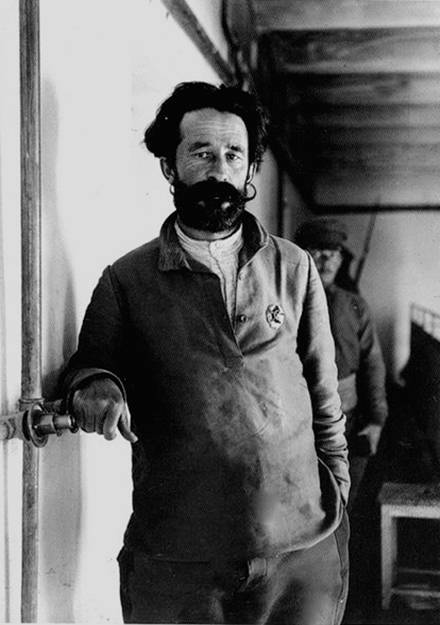
At the time when Mironov spoke at the conference, at the Archeda station, a few kilometers from Mikhaylovka, several cavalry units loyal to him began to concentrate. Located next to the Ust-Medveditsk 10 th regiment of internal service troops (the forerunner of the current Interior Ministry troops), more than half consisted of soldiers of the infantry divisions of the former 2 Cavalry Army, according to the reports of the Cheka officers, he held himself very mysteriously.
And although Mironov was not looking for direct contacts with Vakulin, in Moscow they decided to act proactively: February 12 flew into the Archeda station with a flying KGB squad. Then there was a rush to Mikhaylovka, the arrest of Mironov and five more people from his closest circle. On the same day, Philip Kuzmich was under a reinforced convoy sent to the capital, where he was imprisoned in Butyrka prison.
In prison, the former commander was kept with all severity, but he was not presented with any charges, was not taken for interrogations, and was not satisfied with confrontations. And on April 2, he was just shot dead by a sentinel from a tower while walking around the prison yard.
Surprisingly, the story has not kept a single document capable of shedding light on this mysterious murder. Interestingly, the death of Mironov was a complete surprise even for the KGB: an investigator who fabricated a case of a counter-revolutionary conspiracy learned about the death of the accused a few weeks after the fatal shot.
On whose orders was killed, and then betrayed to complete oblivion, one of the main characters of the Civil War? What is the reason for such a cruel reprisal against a person and his memory? Most likely, in the beginning of the struggle for power, so inevitable after every revolution, honest and incorruptible, straightforward and incapable of compromise, Mironov was dangerous for everyone. And each of those striving for power understood perfectly well that making it an ally in political intrigues would be very problematic. And no one would want to have such an opponent as Philip Kuzmich ...
There is another historical incident in the amazing fate of this remarkable man: in 1960, the decision of the Military Collegium of the USSR Supreme Court Philip Kuzmich Mironov was posthumously rehabilitated.
But how can someone be rehabilitated without this accusing or condemning anything?
Information